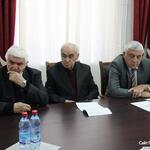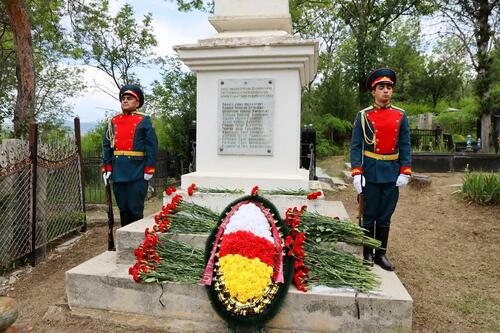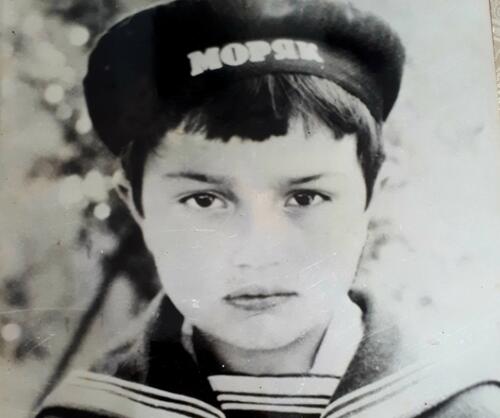The issue of collecting and preparing materials on the genocide of the people of South Ossetia in 1920, necessary for submission to the State Duma and the Federation Council of the Federal Assembly of the Russian Federation, was discussed at a meeting of the parliamentary committee on national politics, culture, religion and the media on Tuesday, the press service reported.
Earlier, the Committee already held two meetings on this issue, where the participants were familiarized with an approximate plan of commemorative events, which will mark a sad date in the history of South Ossetia.
“A letter was received by the RSO parliament requesting that they prepare and submit materials on the genocide of the people of South Ossetia in 1920 and forward them to the State Duma and the Federation Council of the Federal Assembly of the Russian Federation. The recognition of genocide is one of the fundamental areas of activity of state power. If the crime is not punished, then the conditions are created for its repeated commission, and our entire history for a hundred years is clear evidence of this fact. In order to ensure military-political security, we need recognition of the genocide by the Russian Federation and other countries,” said the head of the Committee Amiran Dyakonov.
He also explained that a working group had been created in the State Duma of the Russian Federation to study the appeal of the South Ossetian Parliament on the recognition of the genocide of the people of South Ossetia in 1920. This topic has been repeatedly discussed in Moscow, and in the near future a regular meeting of the working group in the State Duma of Russia is planned.
The Parliament Speaker Alan Tadtaev told about the work of the II International Conference “The Role of the Interaction of Factions of Political Parties and Blocs in Inter-Parliamentary Cooperation of the CIS Countries”, which was held at the State Duma of the Russian Federation in late November. A group of deputies led by the Speaker also took part in its work. He has noted that the conference was attended by all CIS countries, except Georgia and the Baltic states.
After this, the meetings were held with the leaders of the factions represented in the State Duma of the Russian Federation, including a meeting with the Chairman of the State Duma Committee on CIS Affairs, Eurasian Integration and Relations with Compatriots Leonid Kalashnikov and his Deputy Viktor Vodolatsky.
“The meeting was held in a very constructive atmosphere. The question that was raised at this meeting concerned, first of all, the recognition of the genocide of our people. We saw full understanding from our Russian colleagues. They closely deal with this issue with Russian scientists and historians. It is necessary that the South Ossetian commission as soon as possible prepare the entire package of materials it has and send it to the State Duma of the Russian Federation,” said the head of the legislative body.
Alan Tadtaev has also added that the commission of the State Duma of the Russian Federation will arrive in Tskhinval on December 15, 2019 to get acquainted with archival documents on the Ossetian genocide. A joint commission will be created, where during the work both parties will submit all the documents, they collected, confirming the events of 1920.
As noted, one of the points of the program of events that need to be prepared for the historical date will be the publication of a scientific work on the topic of genocide. This task was entrusted to Konstantin Pukhaev, Candidate of History, senior scientific associate of the South-Osetian Research Institute. He briefed the audience on the work done on this material. According to him, the work on the book “The History of the South Ossetian Genocide in 1920”, with a volume of more than 370 pages, has been going on for more than two years. The historian called the lack of complete information about the events of those years the most important problem in this process. He has noted that the funds of the South Ossetian state archive are more than scarce, since it was created in 1921 after the establishment of Soviet power in theR.
He worked in two leading Russian archives. He also used Georgian periodicals; newspapers were preserved in the archives of the South Ossetian research institute. In addition, he has noted that not all materials are still declassified, many of them are in very poor condition, half are still encrypted.
When the manuscript was ready, it was given for review to a prominent historian Ruslan Bzarov, and then to Robert Kulumbegov, who gave a very high rating to the work.
During the discussion, Speaker Alan Tadtaev proposed sending the collected materials by Konstantin Pukhaev to the State Duma of the Russian Federation, as they are already ready, and also to facilitate the publication of the book in the near future.
Amiran Dyakonov proposed connecting to the 100th anniversary of the tragic date - the genocide of the Ossetian people of 1918-1920. public organizations registered in South Ossetia and Ossetian diasporas, which are located in many countries of the world.
Deputy Alan Alborov, Minister of Culture Zhanna Zasseeva, editor-in-chief of the Khurzarin newspaper Yuri Gabaraev and director of the South-Ossetian Research Institute Robert Gagloyty expressed their opinion on this issue.
During the discussion, it was decided to send the scientific and journalistic work of Konstantin Pukhaev on the Ossetian genocide in the 20s of the last century, to the State Duma of the Russian federation.
The Committee was attended by deputies Alan Alborov, Zaza Dryaev, Garry Muldarov, Arsen Kvezerov, Ibrahim Valiev, Dzambulat Medoev, Ivan Slanov, as well as the Minister of Education and Science Natalie Gassieva, Deputy Minister of Justice Nona Tedeeva, Deputy Minister of Finance Marina Tibilova, historian and professor of the South-Ossetian State University Yuri Gagloyty.










